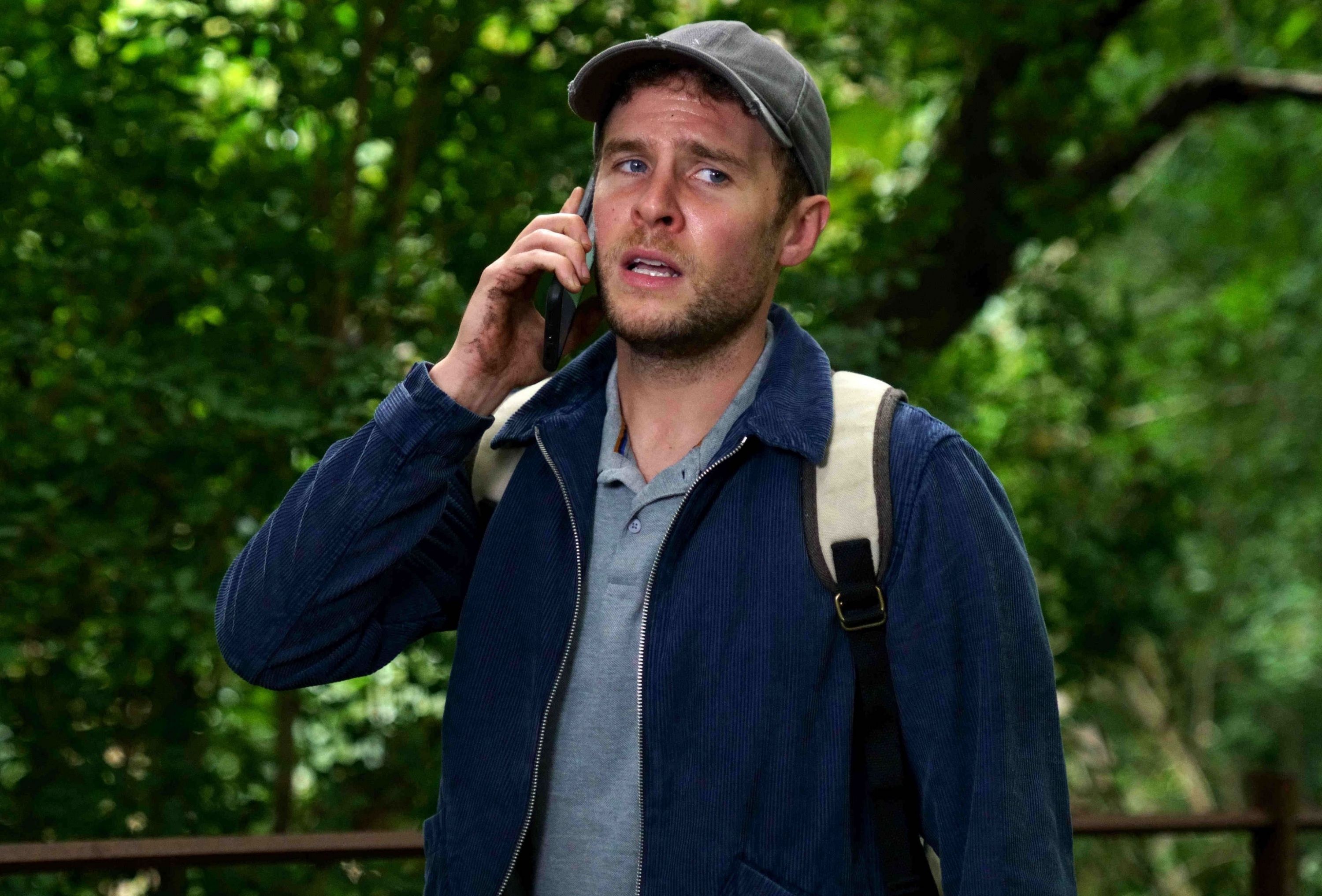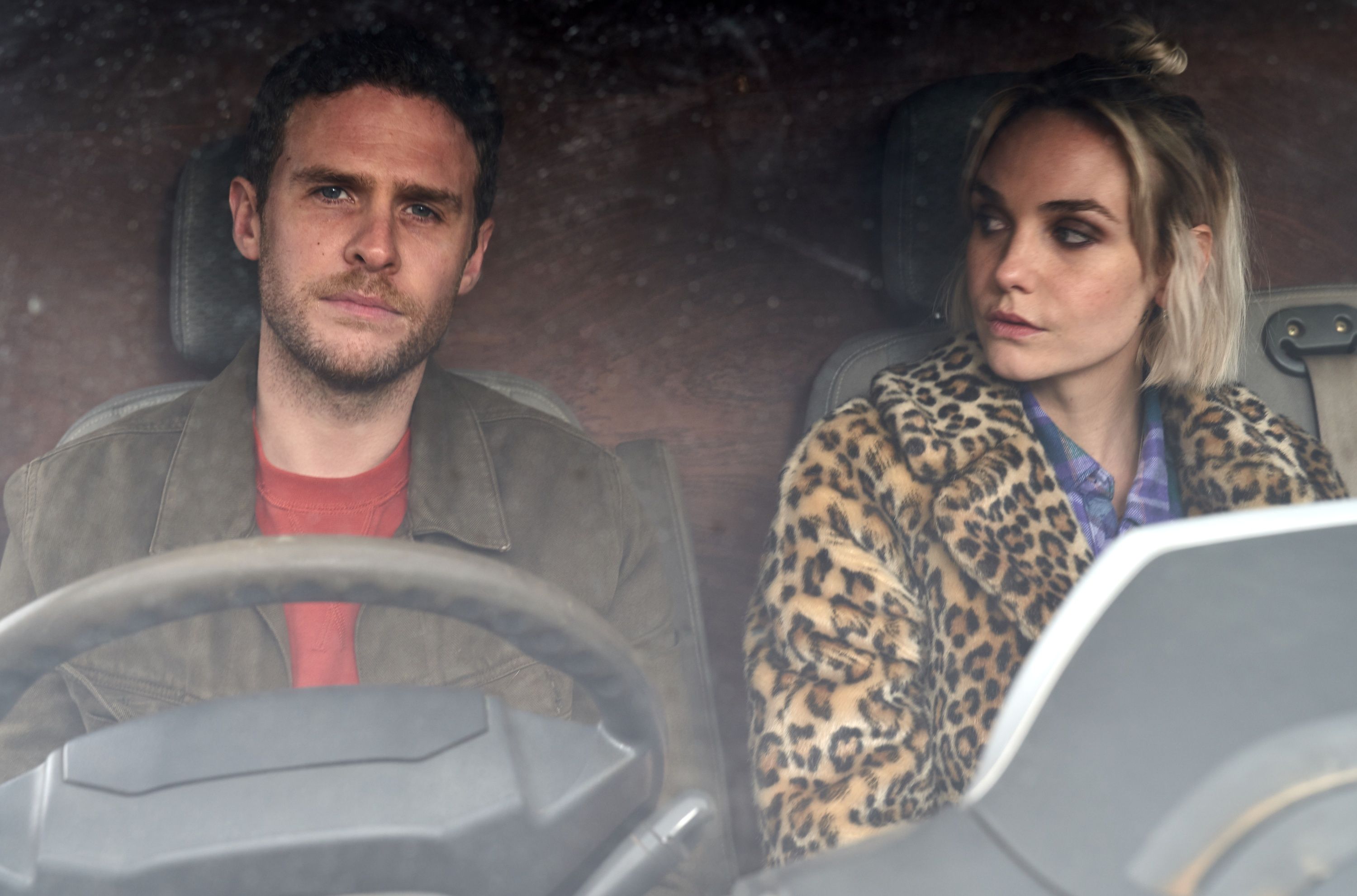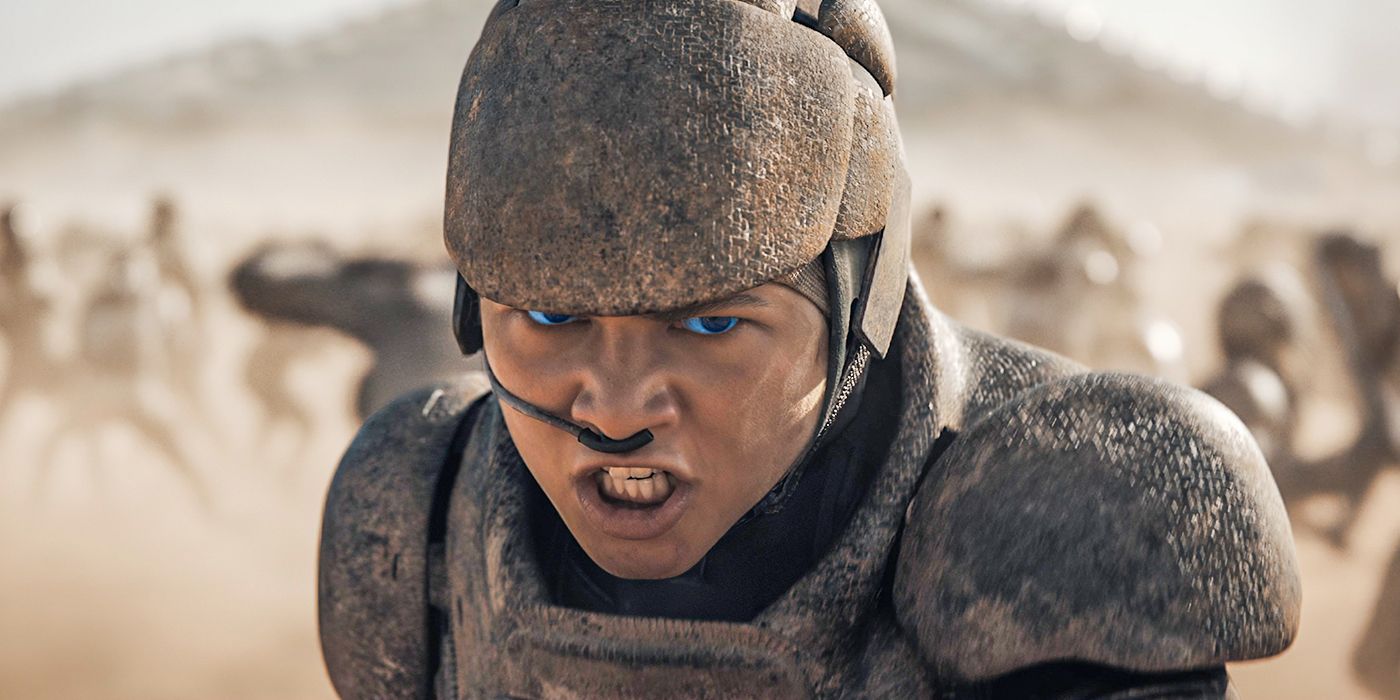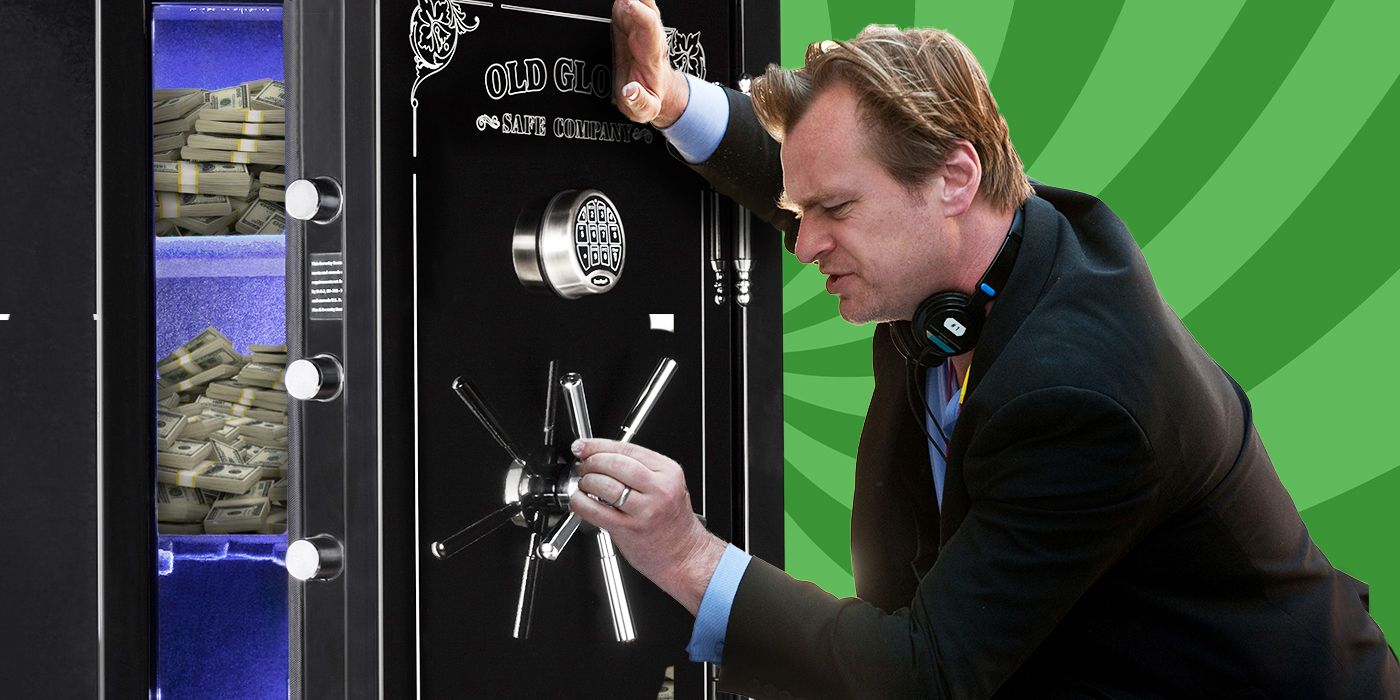[Editor’s note: The following contains spoilers for The Control Room.]
The three-episode thriller The Control Room, debuting on BritBox as part of BritBoxing Week in honor of the UK tradition of Boxing Day, tells the story of Gabe (Iain De Caestecker), an emergency call handler for the Scottish Ambulance Service in Glasgow whose otherwise ordinary life gets turned upside down when he receives a call from someone who recognizes his voice. As he works to track down who he believes was on the other end of the line, his past collides with his present in a way that quickly spirals out of control.
During this 1-on-1 interview with Crumpa, De Caestecker talked about how much he knew about the story’s reveals before shooting the series, what it was like to spend time in real-life control rooms, playing someone who just keeps making things worse for himself, shooting in his hometown of Glasgow, what he liked about the ending, and how much this project really weighed on him. He also talked about what’s next for him, the difference with spending so many seasons on one series like he did with Agents of S.H.I.E.L.D., and whether he’d ever hoped that his character would more directly become a part of the MCU.
Crumpa: When you do something like this, that is three episodes, do you get all three episodes before you shoot it? Did you actually know what the whole story was and was that part of the appeal? How did that work?
IAIN DE CAESTECKER: That’s a good question, actually. Usually, it depends. I met with Amy Neil, who’s the brilliant director, and one of the main things was that we just really clicked. I think they’d sent over two episodes, at that point, and I found when I read it, it was a real page turner. I was on the edge of my seat the whole time. I remember I got on to speak to her, and I was still having palpitations from the second script. We got so excited, talking to each other, that she was like, “Oh, well, I’ll just tell you what happens at the end.” So, she actually gave away the ending. She ruined all the twists for me, before I read it, so I was anticipating the third episode. It was a nice way to do it.
With a story like this, the way it ends and the way that it all comes together is so important. Everything could just really fall apart, or it could all turn out really great. Did at least being aware of where it was all going help reassure you?
DE CAESTECKER: Yeah, it did. I’ve been on things before where you don’t know. You have an idea of maybe where your character’s going to go, but you don’t see all the scripts. So, it’s really nice to have something where, almost the same as doing a movie, you can bookend it, and you can say, “Okay, well, I start here, and I’m going to get to this place.” It does make that process easier. And doing three episodes is really like shooting just a bit of a longer movie, really. I probably watch movies more than I do TV. When it’s TV, I don’t tend to stick around for repeat seasons too much, so this is the kind of thing I would really enjoy watching, just because everything does get tied off, at the end of it. It’s three hours, and then that’s it.
Was it more of an adjustment for you to go do something like Agents of S.H.I.E.L.D.? You never knew where things were going, or where it would all end up. How did that compare?
DE CAESTECKER: The cool thing is that I find the more I do acting, the less clear everything is and the more it becomes like, “Oh, God, I’ll never figure this thing out.” While that’s frustrating, it’s also part of the magic of it. There is something to be said for doing a show where you don’t know where the character’s going because you’re less affected. It’s that thing of somebody walking in the room and trying to play the childhood trauma, just by walking into a room. Sometimes there’s a burden for knowing too much, and sometimes you just play stuff a bit straighter when you don’t know too much. S.H.I.E.L.D. was such a big part of my life, for a long time. After I left it, there was definitely a readjustment period, of finding and playing different characters. I’d only played the same character, for so many years. I’m still figuring that out, I would say.
The job that your character has in The Control Room seems like it would be a very high stress job with a lot of anxiety, and with very high highs and very low lows. How did you prepare for that? Did you try doing the job, yourself? Did you just talk to people or watch people who did the job? How did you figure out what that would be like?
DE CAESTECKER: Yeah, I did. I went into some real life control rooms. I spent quite a few days in there, and had some night shifts, as well. You get humbled pretty quickly in those places. It’s the invisible facet of the emergency system. There’s a line in the show where they say, “You are with people in their darkest moments.” And you are, being on the other end of the phone, hearing people at that high pitch frequency of intensity and emotion. Sometimes people are phoning about their child that stopped breathing. They’re the most horrific things you can imagine, and it’s pretty traumatizing to be down the other side of it. At the same time, you are there to see people through, and part of that job is about remaining calm under pressure, which is really no mean feat.
When I first went in, the first call I did was a woman who had dislocated her knee, and she was just howling down the phone. I all but grabbed the woman on the other end, took the microphone off of her, and started screaming down the phone back at her, just because I was so panicked by it. But the woman who was the controller on the end of the phone was just so cool about it. She got the right information from the woman, and she just had such a great bedside manner about her. They do a really incredible job there. It was really useful. Even if I haven’t done a good job portraying it, it felt like a level of respect, just to go in and see what that world is like, before we started shooting it. And they were so generous with their time in the control rooms that we went into. We went into three – one in Glasgow, one in Edinburgh, and one in Cardonald – and they were all so giving and lovely with their time, so big shout out for them.
It definitely seems like one of those things you take for granted. If you’ve ever called somewhere like that and gotten somebody on the other end, in that moment, you’re probably not thinking about how it’s an actual person. Does seeing how actual people handle it really give you a different perspective?
DE CAESTECKER: And speaking about the character of Gabriel, he’s somebody that has actively tried to separate himself from society. He likes to be invisible. At the same time, he’s a good person. He wants to do good in the world, so this is the perfect job for him. He can make a difference, but he can do it without having to show his face. For him, it’s perfect. There are so many facets about it that suit him. The unsociable hours are great for him because he wants an excuse to get out of having to go on a date with someone, or having to create relationships with people. There are so many facets of it that suit somebody like Gabe.
Does Gabe feel like a character who just kept making things worse for himself? Did it feel like there were so many other better decisions he could have made, along the way?
DE CAESTECKER: Of course, there are times when you’re like, “What are you doing?!” But the thing that I always really liked about the story, as a whole, is that it asked the question, how far would you go for someone you love? Some of the things he does, you might be like, “No, don’t drive the van away. That’s mental. What are you doing?” There is a side to it that is just really lovely and heartwarming because it’s somebody that will do and be willing to put himself in the most outrageous situations, and some of the situations are out of his comfort zone, and he’s doing it all for this person. There’s something really lovely about that.
You shot this in Glasgow. What’s it like to shoot in your hometown? How does the familiarity with where you’re shooting affect the production for you?
DE CAESTECKER: I haven’t lived in Glasgow for a long time now, and I hadn’t shot there for probably about 10 years. It really felt like coming home. I absolutely loved it. The big thing about Glasgow, which maybe is the same with most cities, is that it’s really the people that make it. And the crew was just fantastic. You’ll be out filming on the streets sometimes, and people will stop and just have the loveliest things to say. That’s what makes the city and what makes being there. It also looks stunning. The skyline of Glasgow is just beautiful. There’s nowhere else like it.
The scenes where you’re in the middle of all of those Christmas trees was crazy. That just looked so visually incredible.
DE CAESTECKER: Yeah, I love the look of it, but it was actually a nightmare filming it. It was all night shoots and it was freezing, we were in the mud, and it was towards the end of the shoot, when everyone was tired. I don’t have the best memories of being there, but you’re right, it looks so enigmatic on camera. That final sequence actually had different iterations in the script. Before we filmed it, the director, Amy, would talk about the Christmas tree farm. Me and one of the actors were like, “She does talk about the Christmas tree farm a lot.” But you can see why. They changed that towards the end, and it was a great way to do it because you have these Christmas trees that are all varying lengths of height and growth, and it proved to be a very suspenseful place for two people to hide.
Aside from the relationship between Gabe and Sam, there’s also such an interesting father-son dynamic in this. What was it like to explore that and figure out that dynamic? We learn so much about their relationship, but they don’t really communicate with each other very well. How was that to find?
DE CAESTECKER: It’s that classic Scottish male thing, where they don’t talk about their feelings. It’s established in the show that Gabe lost his mother when he was young, and his father lost his wife, and that shattered their household. It’s this taboo thing that they’ve never confronted and never addressed. It’s become a cancer between them and their relationship. Especially with things that happen in the past, that’s something that happens a lot. People don’t know how to deal with it or talk about it, so you end up becoming a bit of a pariah sometimes. That’s where he found solace in somebody like Sam. They had this mutual understanding about it. With his dad, nobody’s at fault for it, but neither of them knew how to approach it. Because of that, every time Gabe steps in that house, it’s painful. It’s like a nightmare for him. And so, it’s just a very dysfunctional relationship. They talk to each other while not really saying anything at all. I found that relationship really sad, actually, the more we got into it. I’m just glad that it has a resolution at the end.
What was it like to read that last script and see exactly where all of this would ultimately lead? How did you feel about the way things turned out for your character?
DE CAESTECKER: The ending was something that we talked about a lot, but I really admired that it wasn’t a classical ending. It doesn’t wrap things up in a Disney bow, with these two people ending up together. As you’re watching it, although these two people have this mutual understanding about their childhood trauma and they have this unspeakable and unbreakable bond between them. That’s what the love story is. I think it was nice at the end to go, “Oh, these people are a nightmare together. They’d be an absolute mess with each other.” But they will always be there for each other. There will always be that connection. It doesn’t have to be a classical romantic one. There are probably other people in his life that he’s bypassed because he’s been too hung up on things from his childhood. I like that the end of it was more about somebody coming to terms with things in his past. It’s such a universal thing, that everyone has hang ups in their past. Everyone has things that still have a way to have a hold over them in the present. With Gabe, he’s so stuck in the past that it’s started to define him. I really liked the way they finished it off, at the end, because he’s starting to embrace things about his past and starting to confront it in a healthier way.
When you do a project like The Control Room, that is so heightened and at such an intense emotional level, does that weigh on you, physically and mentally? Does that make it more challenging to get through? Is it more exhausting or more exciting to do that, as an actor?
DE CAESTECKER: That’s a good question. It does, actually, really weigh on you. It didn’t used to, as much, but that’s also something you have to be quite aware of, and I don’t think I was. This was a shoot where I was in every scene and it was quite physical. There was lots of running, and there was lots of me straining my body and being in a panic state, all the time. I have to say, when I finished, I got into quite a state of anxiety afterwards. All of that physicality had built up in me, and I never had it to that extent before. You always get a little bit sad when you finish doing something, but it made me aware that you do need to take care of yourself within it. It’s also probably wise to have a degree of separation, as much as you can, just so that you can understand what’s real and what’s not, and tell your body that. At the same time, as you say, it is exciting to plunge yourself into something. If it had been any more than three episodes, then it probably would’ve been a bit of a nightmare, but it was the right amount of time to do it.
Do you know what’s next for you? Are you someone who, when you read something, you know whether you connect with a character right away?
DE CAESTECKER: I do, yeah. I’m actually right in the middle of doing something just now. This never used to happen, but it seems to be a big thing now, that you’re never allowed to say something until they know. But I would say it’s a totally polar opposite thing, and it’s a kind of character that I’ve never played before. I’m really excited about it. I’m having a really good time on it, but it’s very different. But it’s different, for different things. Gabe really jumped off the page to me. I thought there were a lot of universal emotions and traits in Gabe that people could relate to, but there were also a lot of specific things that I identified with, and I really liked the European thriller aspect of the story. Some stuff takes you a couple of reads before you get into it. Sometimes it’s based on, have I done this before? Maybe I don’t want to do something like that again, or I haven’t done this, and it would be quite fun to do. I try not to make too much of a plan or think too far ahead. I just take it as it comes.
Is the thing that you’re doing another multi-episode TV project?
DE CAESTECKER: I can say that it’s 10 episodes. They may have announced it. I should have checked, but I never know, and I never want to stomp on anyone’s toes.
When you did Agents of S.H.I.E.L.D., did you ever hope that FitzSimmons might turn up in the MCU movies, at any point, or were you happy just being in your own little bubble and connected to what was happening in the movies, but never fully in that world?
DE CAESTECKER: I think I really liked our bubble. It felt like its own little thing. Of course, if the chance had arisen, I’m sure any of us would’ve probably jumped at it. It would’ve been a fun little cool thing to do. But we also had people crossing over into our show, which was cool, as well. It never really became a topic of conversation between us, at any point, funnily enough. We were so busy with doing the show, all the time, that adding on any more shooting days would’ve caused a riot. We definitely fully explored those characters.
The Control Room is available to stream at BritBox.






